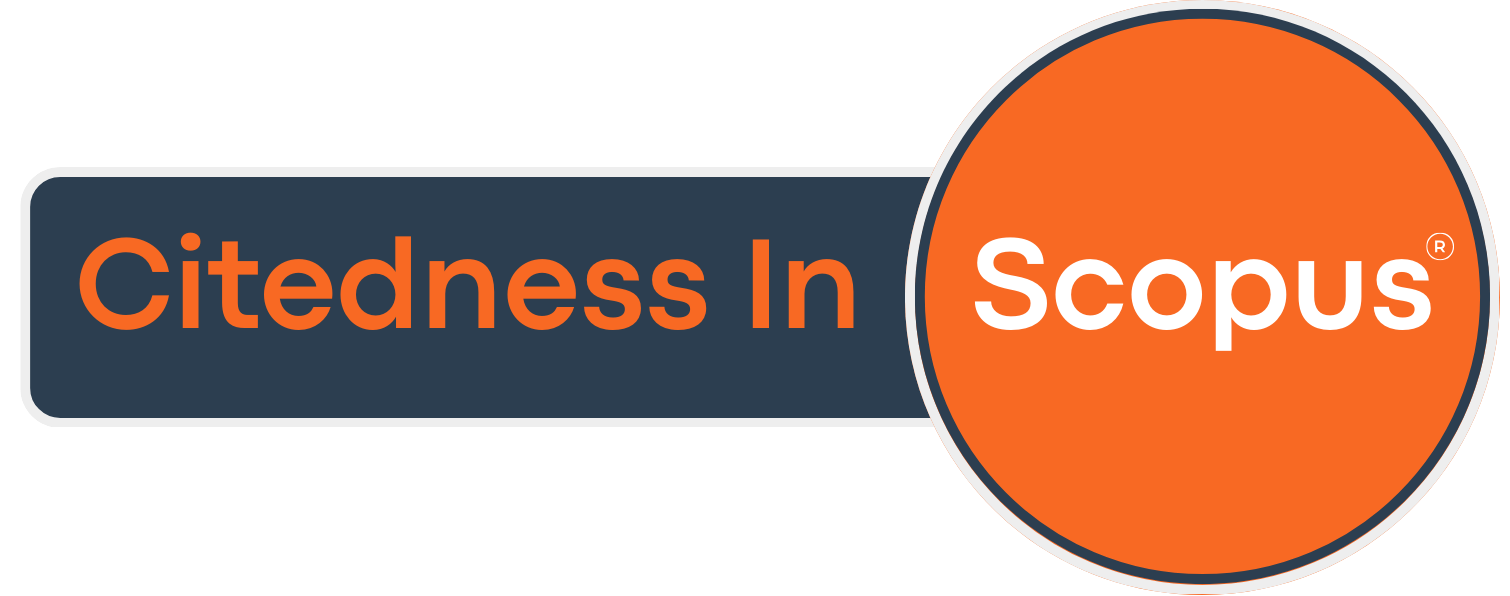THOROUGH BIOINFORMATICS EXAMINATION REVEALS NOC4L AS A PROGNOSTIC INDICATOR IN LUNG ADENOCARCINOMA
Downloads
Objective: This study systematically investigates the prognostic significance of nucleolar complex-associated protein 4 homolog (NOC4L) in lung adenocarcinoma (LUAD) and explores its associations with clinicopathological parameters, immune microenvironment components, and molecular pathways. Method: A bioinformatics-based approach was applied using publicly available databases including Kaplan–Meier Plotter, GEPIA2, UALCAN, and TIMER2.0. Survival analyses encompassed overall survival (OS), disease-free survival (DFS), first progression survival (FPS), and post-progression survival (PPS). Correlations with tumor stage, nodal metastasis, histological subtypes, tumor-infiltrating immune cells, and p53 pathway genes were evaluated. Results: High NOC4L expression was consistently associated with poor prognosis across all survival indicators and correlated with advanced tumor stage, nodal metastasis, and aggressive histological forms. Elevated NOC4L expression showed positive correlations with immunosuppressive cells such as myeloid-derived suppressor cells and cancer-associated fibroblasts, and negative correlations with cytotoxic CD8⁺ T cells. Novelty: This study identifies NOC4L as a potential prognostic biomarker in LUAD, linking its overexpression to immune suppression and tumor aggressiveness, thereby suggesting its role in cancer progression and its potential as a therapeutic target.
F. Bray et al., “Global Cancer Statistics 2022: GLOBOCAN Estimates of Incidence and Mortality Worldwide for 36 Cancers in 185 Countries,” CA: A Cancer Journal for Clinicians, vol. 74, no. 3, pp. 229–263, Apr. 2024.
D. J. Myers and J. M. Wallen, “Lung adenocarcinoma,” Nih.gov, Jun. 12, 2023.
R. L. Siegel, T. B. Kratzer, A. N. Giaquinto, H. Sung, and A. Jemal, “Cancer statistics, 2025,” CA: A Cancer Journal for Clinicians, vol. 75, no. 1, pp. 5–34, Jan. 2025.
T. Kolb, S. Müller, P. Möller, T. F. E. Barth, and R. Marienfeld, “Molecular heterogeneity in histomorphologic subtypes of lung adeno carcinoma represents a challenge for treatment decision,” Neoplasia, vol. 49, p. 100955, Feb. 2024.
L. M. Seijo et al., “Biomarkers in Lung Cancer Screening: Achievements, Promises, and Challenges,” Journal of Thoracic Oncology, vol. 14, no. 3, pp. 343–357, Mar. 2019.
S.-P. Hwang and C. Denicourt, “The impact of ribosome biogenesis in cancer: from proliferation to metastasis,” NAR Cancer, vol. 6, no. 2, p. zcae017, Apr. 2024.
D. Sakthivel, A. Brown-Suedel, and L. Bouchier-Hayes, “The role of the nucleolus in regulating the cell cycle and the DNA damage response,” Advances in protein chemistry and structural biology, vol. 135, pp. 203–241, 2023.
X. Jia et al., “Nucleolar protein NOC4L inhibits tumorigenesis and progression by attenuating SIRT1-mediated p53 deacetylation,” Oncogene, vol. 41, no. 39, pp. 4474–4484, Aug. 2022.
H. Wang, M. Guo, H. Wei, and Y. Chen, “Targeting p53 pathways: mechanisms, structures, and advances in therapy,” Signal Transduction and Targeted Therapy, vol. 8, no. 1, pp. 1–35, Mar. 2023.
A. R. Elhamamsy, B. J. Metge, H. A. Alsheikh, L. A. Shevde, and R. S. Samant, “Ribosome Biogenesis: A Central Player in Cancer Metastasis and Therapeutic Resistance,” Cancer Research, vol. 82, no. 13, pp. 2344–2353, Mar. 2022.
G. Rambaldelli, V. Manara, A. Vutera Cuda, G. Bertalot, M. Penzo, and P. Bellosta, “Drosophila and human cell studies reveal a conserved role for CEBPZ, NOC2L and NOC3L in rRNA processing and tumorigenesis,” Journal of Cell Science, vol. 138, no. 17, p. jcs264096, Sep. 2025.
T. Li et al., “TIMER2.0 for analysis of tumor-infiltrating immune cells,” Nucleic Acids Research, vol. 48, no. W1, pp. W509–W514, Jul. 2020.
B. Győrffy, P. Surowiak, J. Budczies, and A. Lánczky, “Online survival analysis software to assess the prognostic value of biomarkers using transcriptomic data in non-small-cell lung cancer,” PloS One, vol. 8, no. 12, p. e82241, 2013.
Z. Tang, B. Kang, C. Li, T. Chen, and Z. Zhang, “GEPIA2: an enhanced web server for large-scale expression profiling and interactive analysis,” Nucleic Acids Research, vol. 47, no. W1, pp. W556–W560, Jul. 2019.
D. S. Chandrashekar et al., “UALCAN: An update to the integrated cancer data analysis platform,” Neoplasia, vol. 25, pp. 18–27, Mar. 2022.
M. V. Kuleshov et al., “Enrichr: a comprehensive gene set enrichment analysis web server 2016 update,” Nucleic Acids Research, vol. 44, no. W1, pp. W90–W97, May 2016.
M. Carmen. Lafita-Navarro and M. Conacci-Sorrell, “Nucleolar stress: From development to cancer,” Seminars in Cell & Developmental Biology, vol. 124, pp. 64–74, Apr. 2022.
R. Aguirre-Gamboa et al., “SurvExpress: An Online Biomarker Validation Tool and Database for Cancer Gene Expression Data Using Survival Analysis,” PLoS ONE, vol. 8, no. 9, p. e74250, Sep. 2013.
J. Gao et al., “Integrative Analysis of Complex Cancer Genomics and Clinical Profiles Using the cBioPortal,” Science Signaling, vol. 6, no. 269, p. 11, Mar. 2013.
A. R. Elhamamsy, S. M. Aly, R. S. Samant, and L. A. Shevde, “Ribosome Biogenesis Underpins Tumor Progression: A Comprehensive Signature for Survival and Immunotherapy Response Prediction,” Cancers, vol. 17, no. 15, p. 2576, Aug. 2025.
X. Zhu et al., “Noc4L-Mediated Ribosome Biogenesis Controls Activation of Regulatory and Conventional T Cells,” Cell Reports, vol. 27, no. 4, pp. 1205-1220.e4, Apr. 2019.
Copyright (c) 2025 Ayoob Radhi A-Zaalan

This work is licensed under a Creative Commons Attribution 4.0 International License.



















